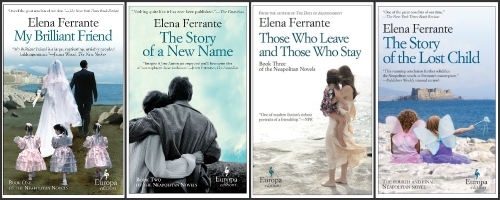
There are many reasons why authors may choose to publish their work anonymously or pseudonymously. Historically, this has primarily been due to the threat of persecution or prosecution if the material produced was controversial and/or illegal. More recently, however, it has often stemmed from the author’s desire to simply let the words speak for themselves.
- J. K. Rowling secretly published The Cuckoo’s Calling under the pseudonym Robert Galbraith in 2013, an experience she described as “liberating” and “wonderful to publish without hype or expectation”, but Galbraith’s identity was leaked just three months later through her solicitors. Stephen King tried a similar experiment publishing books under the name Richard Bachman in the late 1970s and 1980s but was also outed relatively quickly.
- The explanation given for the absence of bylines in current affairs magazine The Economist is that “articles are often the work of The Economist‘s hive mind, rather than of a single author. The main reason for anonymity, however, is a belief that what is written is more important than who writes it.”
- In interviews conducted through correspondence, Elena Ferrante has said that using a pseudonym and not revealing details about her private life was based on “The wish to remove oneself from all forms of social pressure or obligation. Not to feel tied down to what could become one’s public image. To concentrate exclusively and with complete freedom on writing and its strategies.”
I think it’s fair to say that many readers who enjoyed Ferrante’s books were curious about her identity (let’s not forget the flurry of ‘Who is Elena Ferrante?’ articles which appeared when the Neapolitan novels became popular through word-of-mouth). But most would never have imagined going to the extraordinary lengths that investigative journalist Claudio Gatti did in his efforts to unmask Ferrante by combing through financial and property records, revealing that the few autobiographical details she had provided are apparently not true.
It is the tone of Gatti’s article published in the New York Review of Books this week suggesting that readers need to know who she is which many have found so offensive. As Europa Editions UK director Daniela Petracco once said: “I want to know who Ferrante is, but I also don’t want to know” and if Gatti’s claims are confirmed to be true, then the pleasure of not knowing will have been taken away from readers. Furthermore, Ferrante had clearly stated that remaining pseudonymous was crucial to her writing and bloggers such as Elena at Books and Reviews have written very eloquently about the implications of the NYRB article on gender politics. Unsurprisingly, Gatti’s response to the disapproval of Ferrante’s fans was about as apologetic as a Gallic shrug.
Is it inevitable that the identities of anonymous authors are always uncovered in the end? Looking at books published by anonymous and pseudonymous authors in the past shows that the majority are outed at some point, usually after a relentless campaign to uncover who they are, or a leak from gossiping insiders as was the case for Robert Galbraith. But what is achieved by pursuing such enigmas? Gatti’s claims may partially answer some questions about the extent to which Ferrante’s novels are autobiographical or not. However, many authors seek solace in anonymity or pseudonymity, particularly those who are uncomfortable with others drawing parallels between their fictional work and their personal experiences. There was nothing ethically questionable about Ferrante’s choices and there are so many other more worthwhile issues for an investigative journalist to pursue instead which are truly in the public interest.
Booksellers are now predicting that sales of the Neapolitan novels will increase following the news. However, Ferrante has previously implied that she will not publish any more books if further details about her life were ever revealed. I very much hope that this isn’t the case (although sadly I think it might be if Gatti’s findings are confirmed) but most of all, I hope it doesn’t change what her books and characters mean to her readers.





It’s such a pity that we, as a society, still do not respect other people’s wishes when they do not interfere with our own life. Thank you very much for the mention, I hope that with our little fight we remind Ferrante that she’s beloved and respected by most people.
LikeLiked by 1 person
Yes it was such an unnecessary intrusion and I hope something similar doesn’t happen again.
LikeLike
Great post. I am mystified by Gatti’s attitude, and the NYRB. This is a shame.
LikeLike
Thanks! Yes, it seems completely unnecessary for him to expose her in that way.
LikeLiked by 1 person
In the case of Robert Galbraith, I’m not sure I ever would have read them had I not know they were by JK Rowling. And I love those books. Still, Rowling didn’t deserve to be outed like that.
In terms of Ferrante, it doesn’t make a difference really. Those books were already massive and part of that was the mystery about who she was. It doesn’t change anything for me except that I feel really awful that her anonymity, her privacy was breached by someone like that. Wasn’t the gift of her writing enough?
Love this thoughtful post!
LikeLike
Thanks! Yes, it’s different when it turns out to be a famous author behind the pseudonym like J. K. Rowling but it must have felt like a violation for her too. I don’t feel like I would read Ferrante’s books differently today either but it’s a shame she was outed in the way that she was.
LikeLiked by 1 person
This is so sad people generally just need to enjoy the book with obsessing over the writer… They should respect their privacy 🙂 lovely post 🙂
LikeLike
I agree and thank you!
LikeLike
It all smacks of mansplaining too – like “Man tells lady she is not allowed to have private life”. Talk about a mis-use of the word “need”.
LikeLike
I completely agree!
LikeLiked by 1 person
this is another case of someone trying to make money off the back of someone else. This was all so unnecessary. If authors want privacy then they should have the right to it. None of us can even begin to imagine why he/she wants privacy. No one can be trusted.
LikeLike
Yes and it’s frustrating that the journalist still thinks he’s done nothing wrong despite the reaction from her fans.
LikeLiked by 1 person
Fiuh! Well, I can say that I definitely agree that people do not have to know the identity of an author. The most important thing is what they write, not who they are. And that is the case with myself. I am a fan of Orhan Pamuk, but I don’t even know the date of his birth and I don’t care to open the Wikipedia and check it out. It’s not important, at all. It is his work that’s important to me. And you know what? When the report on Ferrante’s identity was published, I didn’t even care to read it. So I still don’t know who she is. 😉
LikeLike
Impressive that you’ve managed not to find out who Ferrante is – I tried not to give too many details in my blog post in case some people deliberately avoided finding out. It just seems like such an unnecessary intrusion and I hope something similar doesn’t happen again.
LikeLike
Great post. There are lots of reasons why authors go under cover, think Josephine Tey, Michael Stewart, Ellis Peter and hosts more. Ferrante did not seek publicity, to ferret out information in this intrusive and unnecessary manner seems perverse. The books spoke for themselves, were popular and, it seems to me, knowing the “real” background to the author adds nothing to them and if, at the same time, it silences that unique voice it is doubly shameful.
LikeLike
Thanks, yes it just seems unnecessary and not knowing who she was gave her fans a lot of pleasure. I hope she does publish more work but would understand if she chose not to now.
LikeLike
Sigh. I think that article was a violation of her privacy, even if people *are* curious about who she is. Like you said, I hope she continues writing despite this “unmasking.”
– Rachana @ Spun
LikeLike
Thanks for your comment – I agree!
LikeLiked by 1 person
Pingback: My Books of the Year 2016 | A Little Blog of Books